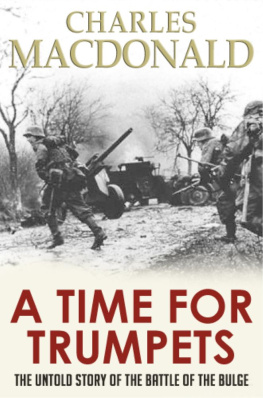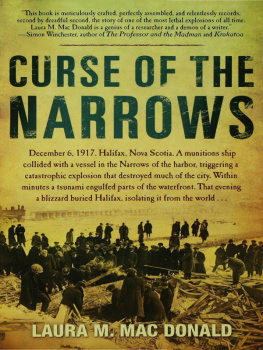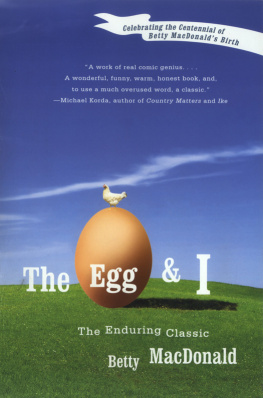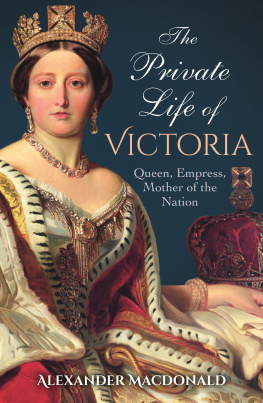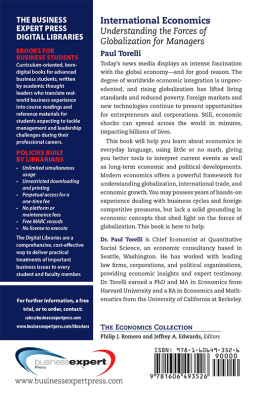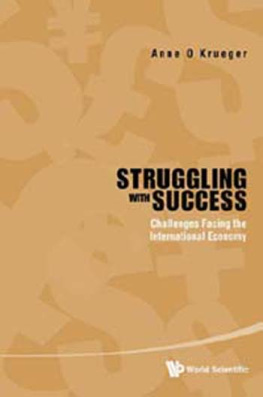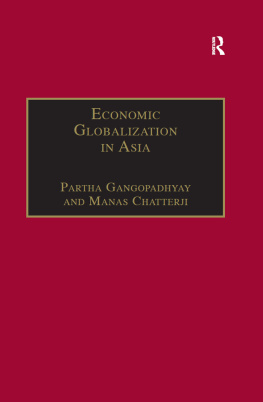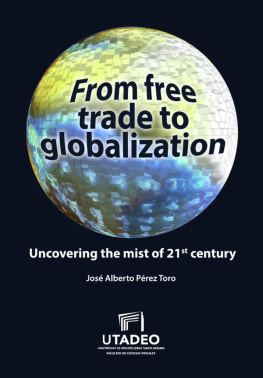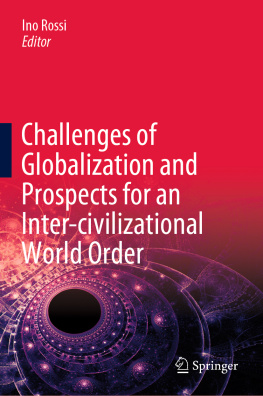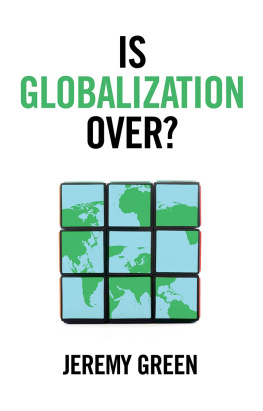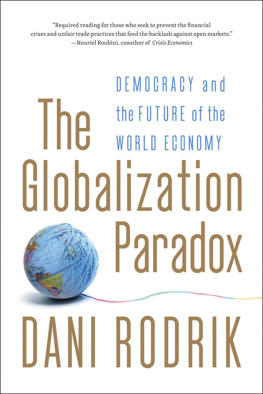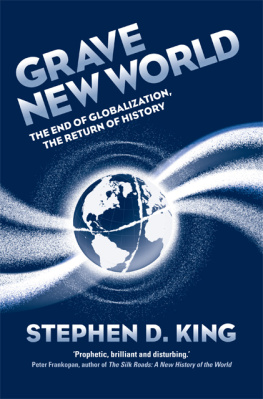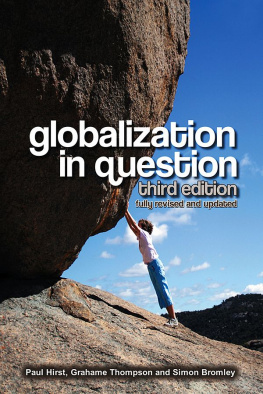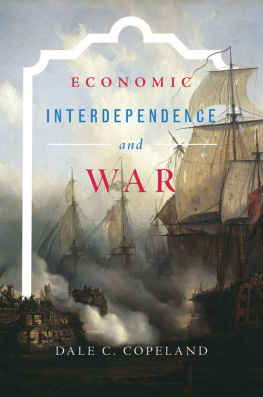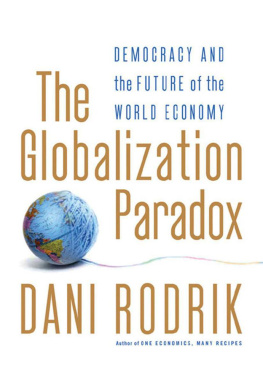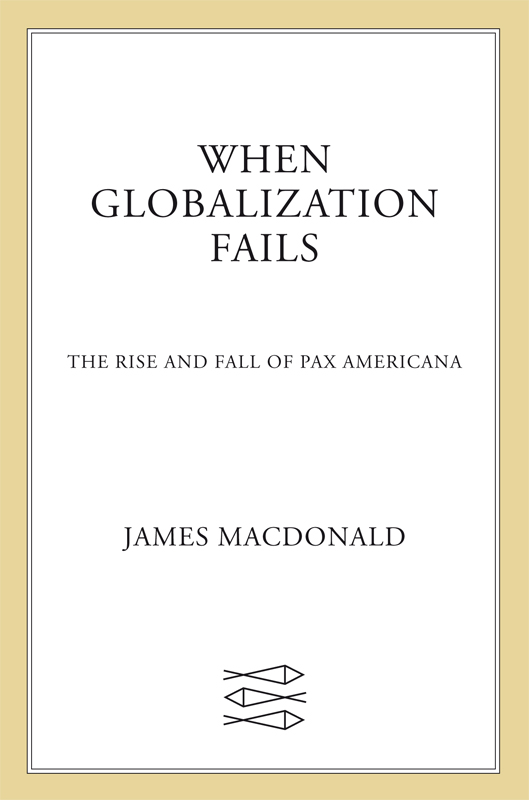Contents
Guide

The author and publisher have provided this e-book to you for your personal use only. You may not make this e-book publicly available in any way. Copyright infringement is against the law. If you believe the copy of this e-book you are reading infringes on the authors copyright, please notify the publisher at: us.macmillanusa.com/piracy.
For my family
CONTENTS
How stable is the era of peace and prosperity that the world has enjoyed since 1945? Such a question may sound complacent given the more than ten million deaths that have occurred in localized conflicts over the past decades. But what has been avoided is the extraordinary carnage of the period from 1914 to 1945, when the Great Powers fought each other and the better part of one hundred million people lost their lives. The question is all the more compelling because the outbreak of war in 1914 shattered a long period, like the postwar era, of extraordinary progress and rising prosperity. Moreover, it was precisely the most industrialized countries that went to warraising the issue of whether something in the process of industrialization made them prone to self-destructive violence. If this is the case, a number of further questions need to be answered: Are the same underlying tensions that led to war a century ago still present? If so, what restraints held them in abeyance for the last seventy years? And are these restraints still as powerful as before, or are they threatened in any way?
This book attempts to answer these questions by looking at the history of war, peace, and trade over the past two centuries. In the mid-nineteenth century it seemed clear to progressive thinkers, as it does to many commentators today, that the way to perpetuate peace was through international trade. Free trade would not only foster economic growth, but the bonds of commerce would break down the barriers between nations and, by interconnecting their economies, would make war unlikely, if not impossible. Richard Cobden campaigned for a world in which free trade would be drawing men together, thrusting aside the antagonism of race, and creed, and language, and uniting us in the bonds of eternal peace. The philosopher John Stuart Mill was even more optimistic, declaring that the expansion of commerce was rapidly rendering war obsolete.
On the surface it looks as if the connection between trade and peace held good in the nineteenth century. The period from 1815 to 1914 has been described as both the long peace and the first era of globalization. International trade expanded at an unprecedented rate, with total imports and exports growing from 2 percent to 17 percent of world GDP over the course of the century. And yet the rising tide of commerce could not prevent the outbreak of Great Power conflict. In 1914, Germany went to war with Britain and Russia in spite of the fact that they were its leading trade partners. What happened to the ideas and hopes of the free-trade liberals?
As the nineteenth century progressed, the connection became clouded. Countries started to turn away from free trade, and tariff barriers, which had fallen progressively in the middle of the century, started to rise. There were two reasons for this change. The first was a rival economic doctrine that argued that free trade merely cemented the advantages of the most highly industrialized countries at the expense of their competitors. A more insidious development grew out of a concern that is one of the central themes of this book: the anxiety that industrialization makes countries vulnerable even as it makes them wealthy. Before the Industrial Revolution, countries had been largely self-sufficient; now they depended on imports of raw materials and on export markets for their manufactured goods.
In the later nineteenth century, the common response to dependence on trade was to attempt to reestablish self-sufficiency by creating colonial empires that would provide the materials and markets that were lacking at home. The process of decolonization that had characterized the beginning of the century went into reverse, and the Great Powers scrambled to take over those parts of the world that still appeared to be up for grabs. Empires were of little use without navies to protect the sea trade that connected them, and the Great Powers, some of which had hitherto possessed minuscule maritime forces, now rushed to build the most modern fleets in an arms race that quadrupled the size of their navies in the twenty-five years before 1914. Yet rising military spending increased rather than diminished their sense of insecurity.
Was there any way to mitigate these tensions? After the First World War, people looked back at the prosperity of the nineteenth century and talked of Pax Britannicathe time when Britain ruled the waves and presided over the peaceful growth of the international economy. However, Pax Britannica, insofar as it ever existed, had become threadbare by the end of the century. British industrial supremacy was a thing of the past. The Royal Navy may still have been the largest naval force in the world, but Britain had no power to limit the growth of dangerous military rivals or to keep the peace. Moreover, in the eyes of Britains rivals, the Royal Navy appeared a threat, not a comfort. In a multipolar world only cooperation could alleviate international friction. The Great Powers sometimes convened conferences to mediate international tensions, but these meetings could occur, not to mention succeed, only if countries agreed to participateand in July 1914 they did not.
When war came, it broke out not over some distant colony but over an obscure landlocked part of the Balkans with no known raw materials worth fighting for. However, the devastating impact of the assassination in Sarajevo was possible only in a context where the Great Powers lived with a combination of fears and ambitions that led them to risk a global war.
The First World War fulfilled the worst fears of those who had worried about the unintended consequences of industrialization. It was not just that the enormous productive powers generated by the Industrial Revolution now unleashed warfare of a hitherto unimagined destructiveness. It was also that the combatants set about exploiting their rivals growing dependence on imports by attempting to starve them into submission through naval blockades. The war came to a close amid rioting soldiers and civilians demanding peace and bread.
After the war, there was an attempt to put the genie back in the bottle. But the peace settlement was a near-complete failure. The insecurities of trade dependence were supposed to be relieved by a reaffirmation of unfettered international commerce and by the creation of a supranational body, the League of Nations, to act as global police force. But in practice, trade was less free than before the war; and the league proved an ineffective peacekeeper, not least because the United States, by now the most powerful country on earth, refused to take part.
Moreover, very little was done to resolve the issue of colonial rivalriesexcept that the losers lost their empires, leaving the winners in complete possession of the field. The result was that the world now appeared more than ever to be divided into those countries that controlled the resources necessary for survival and those that did not. When the tentative steps toward the restoration of world trade in the 1920s turned into outright protectionism in the 1930s in the wake of the Depression, it was scarcely surprising that have-not countries started to demand a redistribution of the worlds resources so that they too could become self-sufficient. Before 1914, the underlying tensions between free trade and economic security had bubbled below the surface of an era where trade was still largely free. By the 1930s, the debate about control of raw materials was naked and vociferous.



